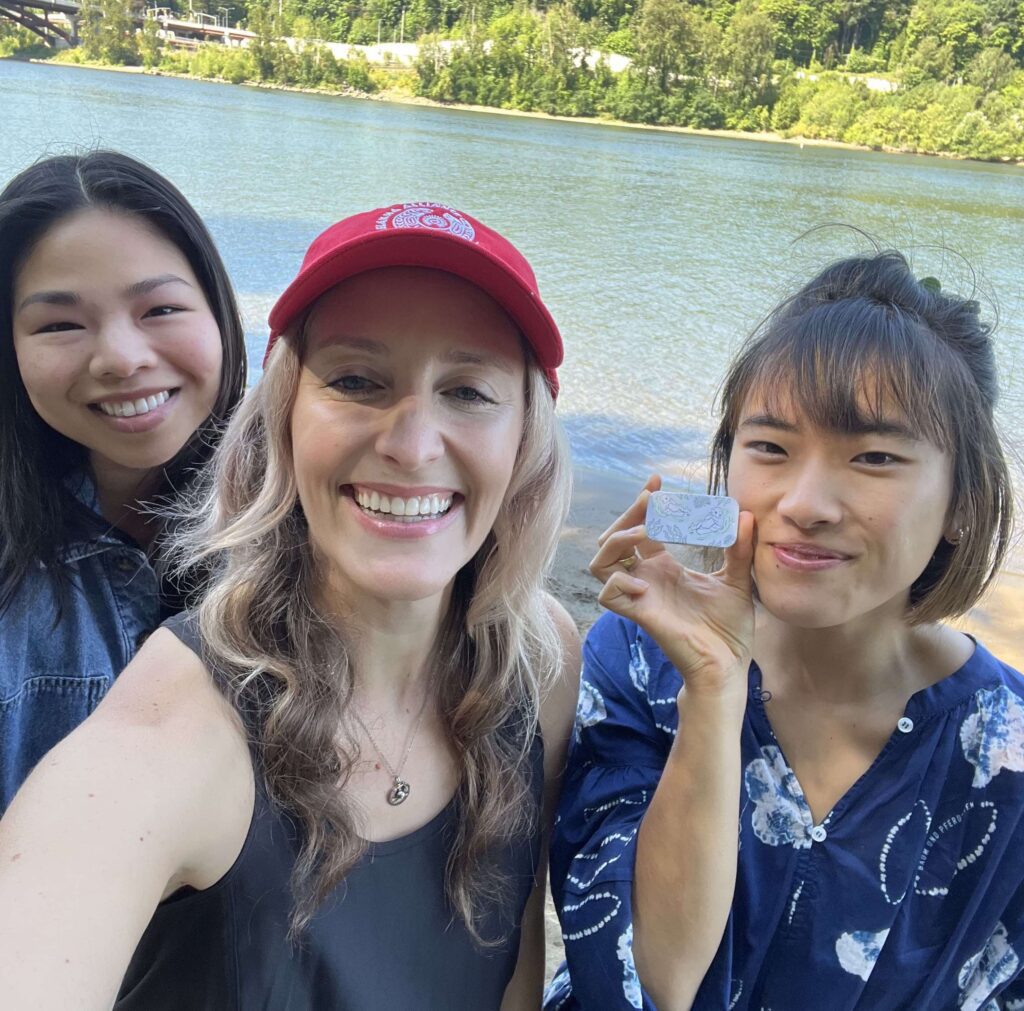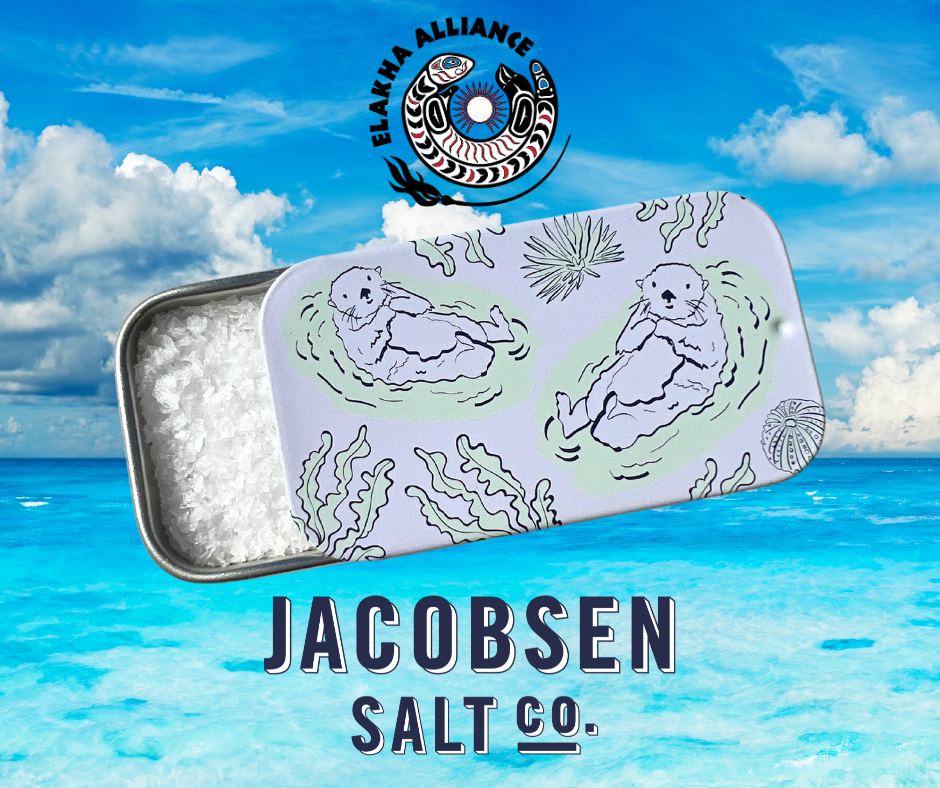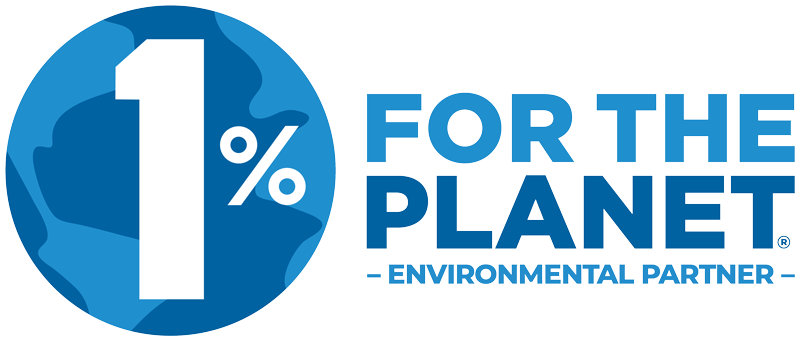It’s been two years since we first teamed up with the Jacobsen Salt Co. for their 10th Anniversary, where they launched a 2021 special edition slide tin to help raise awareness and funds (a whopping $10,700 total) for our mission of restoring Oregon’s population of sea otters and strengthening our local marine ecosystem.
This year, we’re thrilled to be revisiting this partnership with the debut of a 2023 Limited Edition Sea Otter Slide Tin! By purchasing the slide tin through the Elakha Alliance, 100% of the profits will be donated towards ocean conservation. Both Jacobsen Salt Co. and Elakha Alliance care deeply about protecting and conserving our local marine ecosystem here in Oregon.
You can also buy the 2023 Limited Edition Sea Otter Slide Tins through the Jacobsen Salt Co. website, where they will donate $1 per tin sold back to the Elakha Alliance’s mission to return sea otters back to Oregon.

Interview: What's New with Elakha Alliance?
Jacobsen Salt Co.’s marketing team sat down and interviewed Chanel Hason, Elakha Alliance’s Director of Outreach and Community Relations, to learn about all the exciting updates and achievements Elakha has had over the past several years since our initial partnership in 2021.
Enjoy the interview below:
1. CAN YOU GIVE US A QUICK REFRESHER ON WHAT THE ELAKHA ALLIANCE IS?
(CH): Did you know that sea otters used to live along the entire West Coast from Baja, Mexico all the way up the continental US to Japan? Starting in the late 1700’s, sea otters were hunted for their fur and became locally extinct in Oregon by 1910. The Elakha Alliance is a non-profit based in Oregon working to return sea otters back to their native waters along our coastline. We are composed of tribal leaders, researchers, and conservationists who want to reintroduce sea otters back to Oregon’s coast for their cultural significance with coastal tribes, and their ecological and economic benefits.
2. WHAT HAS ELAKHA ALLIANCE BEEN UP TO SINCE OUR LAST COLLABORATION IN 2021?
(CH): Wow, we have been busy since our original partnership in 2021.
- We hired an Executive Director in July of 2022 and a Coastal Community Coordinator in July 2023
- In early 2022, we published a Scientific Feasibility Study on sea otter reintroduction in Oregon, as well as an Economic Impact Assessment
- We had our first Tribal Youth Internship with two tribal college students from the University of Oregon who created a traveling display highlighting the cultural significance of sea otters in Oregon
- We held our first Oregon Otter Beer Festival in 2022, and it was such a successful fundraiser that we made it an annual event and had another Otter Beer Fest in Portland in 2023
- Most recently, we published a South Coast Tourism Impact Study which resulted in an estimated 3.5 million per year increase with the presence of sea otters with ecotourism
3. DO YOU HAVE ANY BIG INITIATIVES OR EVENTS COMING UP?
(CH): We are funding research on assessing shark presence in potential sea otter reintroduction areas in Oregon and also working on translocation planning with wildlife experts and partner organizations. We have Sea Otter Awareness Week coming up in late September, as well as the Elakha Alliance’s annual Sea Otter Science Symposium in October. Our 3rd annual Otter Beer Festival will be held in April 2024 in Portland again, so stay tuned!
4. FOR PEOPLE LOOKING TO HELP, HOW CAN THEY GET INVOLVED WITH THE ELAKHA ALLIANCE?
(CH): People can help by visiting OregonSeaOtters.org and becoming a monthly donor for as little a $5 a month. These funds help us continue our efforts as the sole organization whose mission is to return sea otters back to Oregon. They can also sign up to receive our monthly newsletter the Raft, purchase any of our sea otter merch, or invite us to come speak to their school or organization.
5. DO YOU HAVE A FUN SEA OTTER FACT YOU CAN SHARE?
(CH): Sea otters can see just as clearly on land as they do underwater! Sea otters can squeeze their lenses through their pupils into a more rounded shape when diving. The more rounded shape bends the light more, which compensates for the reduced bending affected by water, and light properly reaches the retina, enabling a clear image.


